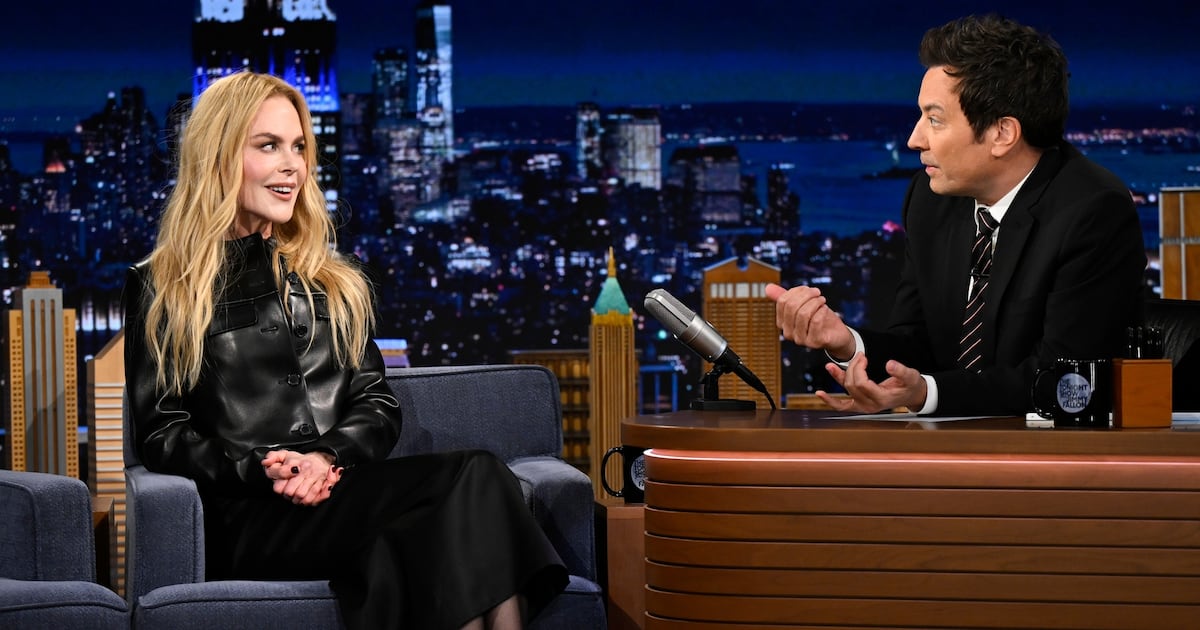It did not bode well that Sky Ferreira didn’t know what time her concert was scheduled to start. A few hours before the embattled rocker’s Dec. 11 performance at New York’s Webster Hall, Ferreira posted a photo to her Instagram Story of the venue’s marquee, advertising her sold-out show. “9 p.m., doors at 7 p.m.,” Ferreira’s caption read. Meanwhile, ticket holders received an email from Webster Hall’s team two days prior stating that Ferreira’s show was scheduled to begin at 8 p.m.
It was the final gig on the American leg of Ferreira’s micro-tour, which had been beset by problems since it began just two weeks earlier. A bevy of technical issues, sets cut short, and reports of strange on-stage behavior poured out of almost every stop on the tour. And those were all issues that occurred after the chronically late Ferreira finally made it to the stage. The average start time for the tour on Setlist.fm—the internet’s premier service for documenting concert details—is cited as nearly three hours after doors opened.
Yet, when Ferreira finally bounded up to the microphone on Monday night (90 minutes after the venue’s posted start time, but only 30 minutes after the one she listed on Instagram), she was in jolly spirits, joking about her perennially sunglass-covered face. The crowd matched her energy, cheering for her as if she were completely punctual before Ferreira barreled into her first song.
Truthfully, anyone showing up to a Sky Ferreira show in 2023 should know exactly what they’ll get: a slightly confused, very delayed show, but one of the best that they’ve ever seen.
It’s that kind of talent—the type that can quell any crowd no matter how unruly—that has made Ferreira such a star despite a relatively small body of work. The musician’s debut album, 2013’s Night Time, My Time, is also her only album. In the decade that has passed since the record’s release, Ferreira’s career has been beset by constant roadblocks. Though she announced a sophomore album in 2015, tentatively titled Masochism, the LP has yet to surface. But that hasn’t stopped Masochism from becoming mythic in the pantheon of lost pop records. Its delay has only perpetuated that fabled status.
Part of that everlasting buzz is due to Ferreira’s outspoken nature and years-long battle with her label, Capitol Records. In a 2019 profile with Pitchfork to promote “Downhill Lullaby,” Masochism’s first single, Ferreira relayed vague statements about her ongoing struggles with “gatekeepers” and label heads. And in an explosive 2022 interview with The Guardian—this time to promote Masochism’s second single, the biting “Don’t Forget”—Ferreira got a bit more specific. “I don’t think [the label likes] looking dumb and like a 20-year-old girl beat them at their own game,” Ferreira said of her push to release “Everything is Embarrassing” off her 2012 Ghost EP. That tune, a downtrodden pop song about the emotional weight of young adult malaise, became Ferreira’s calling card, far and away her biggest hit.
Ferreira continued to describe Capitol’s treatment of her career as “gray-listing,” a revenge tactic the company employed to show Ferreira that, despite the artist proving she was right about her art all along, the label knew best. “[The label] has literally ruined my life,” Ferreira told The Guardian. “My life was taken from me… It was like being in solitary confinement. I felt like I was gagged and bound.”
While Capitol has no doubt had a significant hand in meddling with her career, Ferreira is also a self-proclaimed perfectionist. She’s unwilling to put music out if the finished product doesn’t suit her, famously deriding the pop sound that Capitol pushed her toward on her 2011 EP, AS IF! That quest for excellence has paid off in droves. Night Time, My Time is the kind of album that some musicians go their entire careers wishing they could even come close to. It’s a record filled to the brim with the introspective, intuitive songwriting of a woman well beyond Ferreira’s years; as time passes, it becomes all the more shocking that Ferreira wrote the bulk of the album when she was just cresting into her twenties. (Ferreira turned 31 back in July.)

The cuts from Night Time, My Time take on a rich new life today, as the years between their initial release and Ferreira’s current moment create a bitter layer of resentment between the musician and her label. When Ferreira’s husky voice cuts into songs like “Nobody Asked Me (If I Was Okay)” or “I Blame Myself,” lyrics written well over 10 years ago feel like a thorn to the side. “I just want you to realize I blame myself for my reputation,” Ferreira sings in the latter song, a sentiment that no longer seems as true as it did in 2013, but now sounds like an ironic plea to those gatekeepers holding her music hostage. If Ferreira owns up to whatever reputation they have thrust upon her, if she shows contrition for the sins she never committed, will they let her release the long-awaited Masochism?
The answer to the question remains indefinitely unanswered, though it’s not for a lack of trying on her or her fans’ part. For all those who have discounted her over her long but artistically sparse career, Ferreira’s devoted fans have never left her side. They’ve created Instagram pages dedicated to detailing the perils of her career, thousands of followers strong. Viral threads on X pop up now as a reminder that Ferreira is still very much active in the music scene. They’ve even funded a plane to fly a “Free Sky Ferreira” banner over the Capitol Records building and paid for a billboard with the same slogan on it to appear in Times Square.
Whether or not any of this has any real impact remains to be seen. Most recently, Capitol removed Ferreira’s artist page from their website, leading some to speculate that the label had finally parted ways with their most beleaguered artist. Still, no official word has come from either camp. In the meantime, cries of, “Release Masochism!” filled Webster Hall Monday night, while T-shirts with Ferreira’s waifish image emblazoned with the album’s title across them went for $65 bucks a pop at the merch stand. “I bought one so I’ll have something to wear when the album finally comes out,” a fellow concertgoer standing in front of me on the general admission floor said to his friends. “Then I can tell everybody, ‘I told you so.’”

The concert itself was one of the smoothest on the tour (if the notes on Setlist detailing the other rocky performances are anything to go by). While other shows had songs abandoned midway through or played without parts of Ferreira’s band due to technical difficulties, almost every song went off without a hitch in New York. The only time she stopped a performance was during “Night Time, My Time,” which Ferreira shuttered after the second chorus. “I wanted to [stop] after the first verse,” she told the audience. “That was so bad.” If what she had been singing was what Ferreira would describe as bad, no wonder Masochism has taken so long to refine. Ferreira often sounded reminiscent of Julee Cruise playing the Roadhouse in Twin Peaks, the soft purple lighting at Webster Hall framing her face in a way that director David Lynch would go gaga for. (“Night Time, My Time” quotes the Twin Peaks prequel film, Fire Walk With Me, and Ferreira herself made a guest appearance in Twin Peaks: The Return; she knows exactly what she’s doing and how to do it right.)
At 11 p.m., Ferreira was beckoned by one of her bandmates and told that they had to end the show. Their late start meant that they had exceeded the curfew, and they needed to exit the stage. “What’re they going to do if we finish?” Ferreira asked, clever enough to keep the microphone perched at her lips. “Arrest me?” Feral cheers from the crowd filled the venue; this was Sky Ferreira the rockstar, the woman who could get away with going an entire decade without a follow-up album on wit and star power alone. “What do you guys think—should we finish?” she asked the audience three times in succession, each one more coy than the last.
Ferreira got the all-clear to finish out with two more songs. An acoustic version of “Sad Dream” took the crowd down to her level, and Ferreira’s voice cracked several times throughout its tenure. “Hope it’s not just a bad dream, hope it’s not just a sad dream,” she sang, letting the final words fizzle out. It was a moment that was almost mournful; this was the last stop on her tour, playing a sold-out show for a crowd who had no idea if her next album would ever be released, if Ferreira even did. But then, when the familiar kick drum of “Everything Is Embarrassing” filled the building, none of that mattered.
Make no mistake: Should Masochism never see the light of day, it will be a tragedy. But Sky Ferreira will never be anyone’s martyr—not when she can send a ripple of melancholic euphoria through a sea of people with only a few timeless notes.






